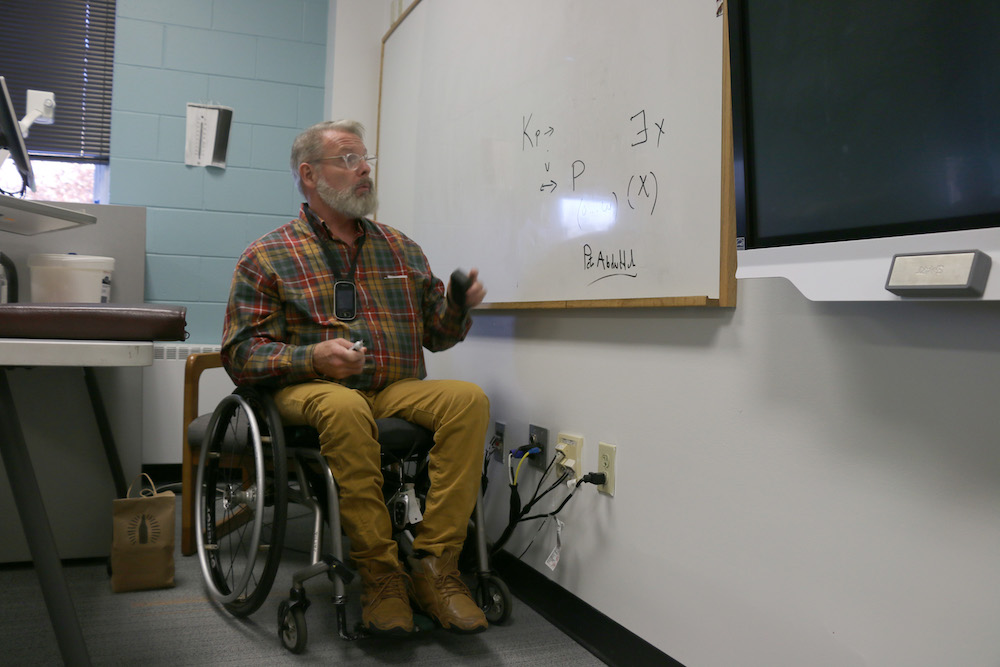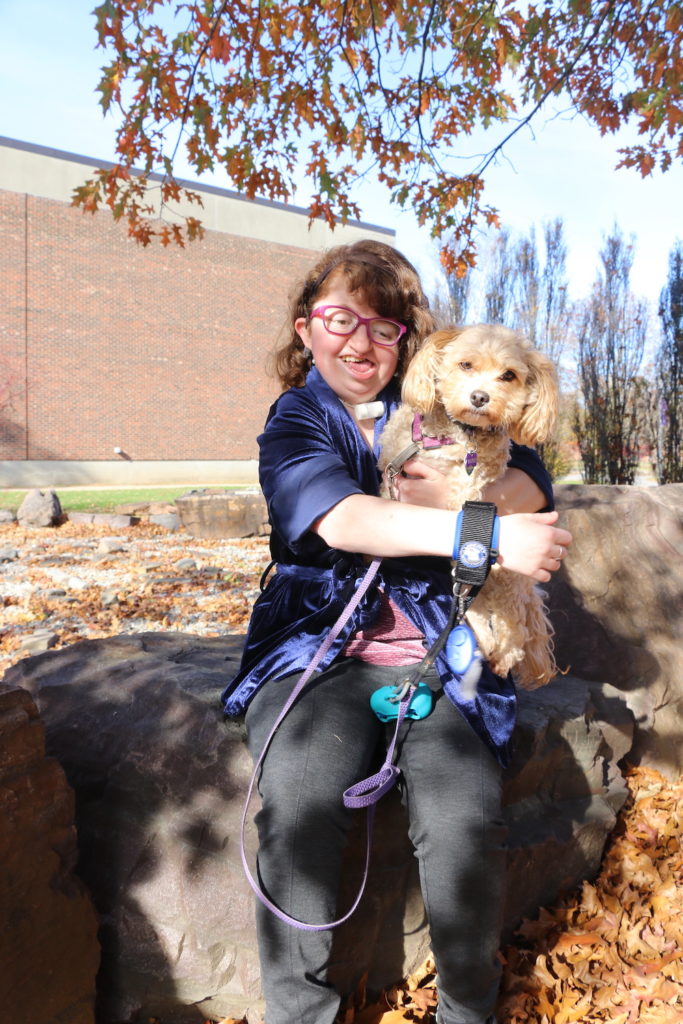Anyssa Logan | Co-Executive Editor | alogan@mail.smcvt.edu

The Student Disability Advocacy Alliance (SDAA) is a safe place on campus for students with invisible and visible disabilities to share their experiences with other members of the disability community or allies. Taylor Galgay ’24 created the club her first-year after noticing the lack of inclusivity and knowledge towards disability on campus. “I really just wanted a community and an affinity group of students and allies that really cared about making St. Mikes a more accessible, inclusive and safe campus,” Galgay said.
This same desire led Galgay to propose a panel about the lived experiences of community members with disabilities.
The panel, “Disability: Changing the Narrative by those with Lived Experience,” was held in the Roy Room of Dion on Tuesday. Galgay moderated the panel, which consisted of professors and students. Panel members included: Molly Thompson ’23, Jackson Greenleaf ’23, Willow Schaefer ’24, Seamus Stein ’23, Professor Sefakor Kombau-Pompeyie and Professor Patrick Standen. The event was an UpLIFT program, and was jointly hosted by SDAA, Residence Life, and the Accessibility Office.
The panel, which was supposed to last an hour, was extended by 30 minutes due to the volume of questions from attendees. Every seat in the Roy Room had been filled, and more chairs were added to accommodate the large crowd.
“There are so many different ways you can support people with disabilities and be allies to them other than just doing little things,” said Schaefer, a resident assistant on campus.
“Working with People Not Their Disability,” hosted by an off campus speaker, was a discussion on Sept. 30th for faculty, professors and residence staff. The structure and organization of the Nov. 8 panel stemmed from an incident where the host made comments deemed ableist and insensitive in late September. “The closest thing I could think of for restoration was to hold a panel regarding identity as told by people with lived experience,” Galgay said. “Any movement towards positive change requires people sharing their personal lived experiences to give voice, raise awareness, change minds, educate to motivate the best decisions concerning our lives are informed by our own voices.”
Thompson, vice president of SDAA, wants the community to understand the range of perspectives that can come with having a disability. “This panel is like our way of saying, well we are disabled and here’s what we think,” Thompson said. “And I anticipate a range of perspectives.”
Thompson wanted to learn more about the disabled community and started a self-designed major focused on disability. Thompson and Galgay started to reach out to the College administration, wanting more courses focused on disability education. This self-designed major of Thompson’s became the torch for Equity Studies, the newest major at Saint Michael’s. Professor Katie Kirby, and 10 other faculty, modeled the major from Thompson’s. “As a disabled person, I want to learn more about how my community got here,” said Thompson. “And so many other communities feel the same way.”

Professor Standen of the Philosophy department teaches one of the courses that came out of Galgay and Thompson’s request for courses. “The Philosophy of Disability” will be offered this spring semester and is open to all students, not just philosophy majors and minors.
Standen has worked at Saint Michael’s for 20 years and emphasizes the lack of representation on campus. “I ask my students when I talk about this, have you ever had a professor, apart from me who obviously has a disability, or have you ever seen a student who is visually impaired or is deaf or hard of hearing and is relying on sign interpretation,” Standen said. “Inevitably students say no, they haven’t.”
Standen also mentioned how disability is a spectrum of visible and invisible aspects to the human eye. “Disability is a very large concept,” Standen said. “It includes disabilities that are less obvious or hidden disabilities, cognitive, developmental, intellectual, physical, emotional.” The panel included a mixture of different people with disabilities to help share the range and the different experiences.
The panel aimed to educate the community on the variety of dialogue around disabilities and discussed their lived experiences. Each panel member shared their views and opinions on terminology around disability, mainly focusing on person first (person with a disability) and identity first (disabled person). “Something like disability, I think that people usually think of it in sort of general terms,” Greenleaf said. “They often forget that individuals with disabilities are their own people.”
A common thought shared by many of the panelists was the need to make St. Michael’s campus more accessible, both programmatically and architecturally. Greenleaf lives in the 300’s townhouses and if the path is not plowed during stormy weather, arriving to class on time, or at all, becomes difficult. Unpaved paths have resulted in him turning back home and missing class. The buttons to open doors, in Dion and the educational buildings, are frequently broken, mainly due to people misusing them. “For my classes in Jeanmarie, I use a stair lift and recently I have two classes in the morning and the stairlift was broken, so I was unable to go to class,” Greenleaf said. “It’s something that you wouldn’t necessarily think about ever until it’s broken.”
While Greenleaf focused on keeping up with maintenance across campus, Standen mentioned the lack of programmatically accessible activities. “The NCAA requires all colleges to offer varsity level adaptive sports as they do with the regular sports programs,” Standen said.
Kombau-Pompeyie explained how important it is to educate everyone about disability. “I think it’s about the dialogue again, because we just don’t know,” said Kombau-Pompeyie. “Before you know that you need something, that needs to be discussed with the people around you.”
At the panel, Kombau-Pompeyie used a personal analogy to emphasize and explain the value of disability education. “Until the lion learns how to sing, all the glory goes to the hunter,” Kombau-Pompeyie said, referring to the idea of identity acceptance.
As the panel ended, Jeff Vincent, director of Residence Life and Community Standards, suggested a part three to the discussion, wanting to further the discussion on campus. Marina Donati ’24 attended the panel in hopes to hear more from the disability community. “I haven’t heard enough perspective from the disabled community,” Donati said. “I’m also looking forward to a part three if they decide to do that.”

